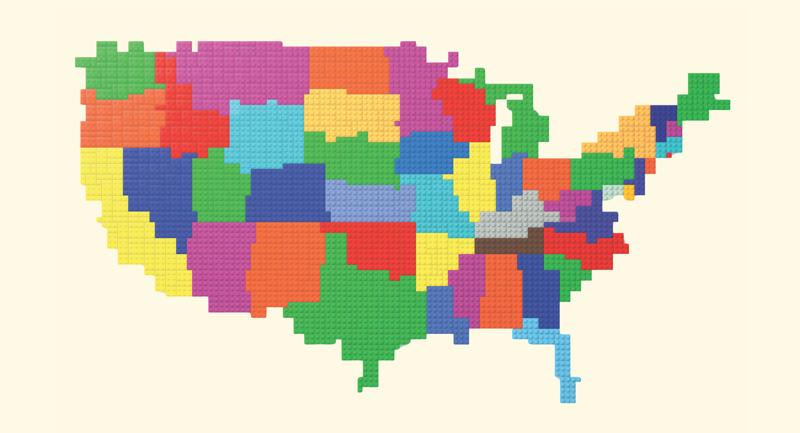California had been playing with different forms of standardized tests long before I entered the school system as a student in 1992. Long days devoted to filling in bubbles, relearning the virtues of process of elimination, and my parents poring over scores were the norm.
I didn't think much about it until I became a teacher in 2009. California was deep in difficult debates about education reform and testing. "Assessment" and "data" became words that education consultants, administrators, and the government loved, but many educators seemed to despise. I heard some educators reminisce fondly about the days when classrooms were "fun" and "free." As someone who had been tested her whole life and now struggled to get students to meet proficiency on various benchmarks, it sounded like a magical time.
I wanted to avoid being "assessment-based" and "data-driven"—those types of teachers didn't truly care about students' hearts as much as their ability to pass a test.
Data Informs Everything
In my second year of teaching, I had a shift of consciousness. Skimming articles on "checks for understanding," I saw a few that argued it was important to not just check students' understanding of concepts, but also to "assess" their mood and behavior as we progressed through a lesson.
Then, it clicked: I had been assessing students—and, actually, everyone—on a range of indicators in nearly every interaction of my life.
It turns out that life is really a series of data-informed assessments and actions. As a kid, I collected data on my parents' moods when they came home from work ("Is Mom talkative and happy? Or is she quiet and terse?") and assessed whether to ask for extra cookies after dinner (answer: always a no). As an adult, I looked at the data that showed I left my school ID at home most days, and then decided to leave it at school.
As teachers, we're collecting data the moment our students enter our classrooms: Do lots of students have questions about the homework? Are they calm and present, bouncing off the walls, or do we need to address any hidden tension?
Data and assessments don't need to be cold-hearted tools that reduce my students to weaknesses and numbers. Instead, they can be another way I build deeper and more loving connections with students.
Taking Back the Term
I am still concerned about overtesting students and the biased and problematic ways the U.S. education system focuses on standardized tests. Some first-year teachers I coach are reluctant to give diagnostic assessments or share assessment data with their students. They worry the scrutiny will make their students feel unworthy or incapable.
That's a fair concern. There are times, though, when assessing a student can be an act of love, validation, and care.
One year, I started the first day of school asking my students to choose an adjective to describe themselves. I let them think for a moment, then called on the first student. His eyes went big, and he looked scared, which perplexed me—after all, we were just getting to know each other. Then, another brave student raised their hand and asked, "Ms. Torres, what's an adjective?"
I laughed at myself, apologized, and asked if anyone could explain the term adjective for the class. One did, and the rest of the day went great. Many students simply have a summer brain lapse. Still, I asked myself, what if I had done a quick, thumbs-up or -down diagnostic of my students? Could I have spared that first kid a moment of terror?
"Data" is a broad word that, for many, has come to mean points on a chart and numbers on a spreadsheet. If we only collect the kind of data that shows proficiency in a single skill or idea, it can make students feel like another cog in the machine of standardized education. We must get content- and skill-based data and socioemotional information to best support our students. Discovering and supporting your students' needs, allowing students to share their strengths, and asking them about their emotional state shows we care about what they think and how they feel. Data doesn't have to reduce students to a number, but the way we treat our students can.
A Lens for Love
Yes, assessment can show students their deficiencies. But it can also be a way to ensure we are giving students the tools and skills they need and perhaps even to look for the gifts they bring to the table. What if we designed assessments that didn't just test students on a standards-based concept or right answer, but also showed their abilities and understandings of their communities and cultures? A multiple-choice test is easy to grade but asking students to compare a character in a novel to someone in their community enables them to show their content knowledge and demonstrate cultural assets. Assessments could be the tool that students know is not just testing what they learned, but also inviting them to share the wonderful gifts they already have.
Each year, I am reminded how much power I have in my classroom—not necessarily just over the content or skills I teach. I am in charge of the mindset with which I treat my students. The lens through which I view my classroom colors the relationships I build and how I engage my students in the practical, day-to-day realities they are learning to face. So, when I approach the seemingly nitty-gritty and clinical world of "data" or "assessment," I can either do so with dread, or I can approach it the way I do all things in my classroom: with love.
How Do You Create a Healthy Relationship with Assessment?
Assessment should serve as a multifaceted analytical instrument for ongoing reflection. When used as an evaluative tool that combines qualitative and quantitative factors as one component in a comprehensive educational program, assessment can support the growth of a student and account for limitations, biases, and subjectivity. When assessment becomes a tool to overanalyze students, it negatively impacts a learner's agency and identity development. —Cody Norton, 3rd grade teacher, District of Columbia Public Schools, Washington, D.C.
Presenting and practicing the growth mindset is the true key to academic success. Through rigorous daily work, precise praise, and effective feedback, teachers provide students with the tools they need to make improvements over time. By developing a deep understanding of the state standards, teachers can guide students to mastery of skills. —Brandy Hempen, curriculum coordinator, Germantown Elementary School, Germantown, Illinois









